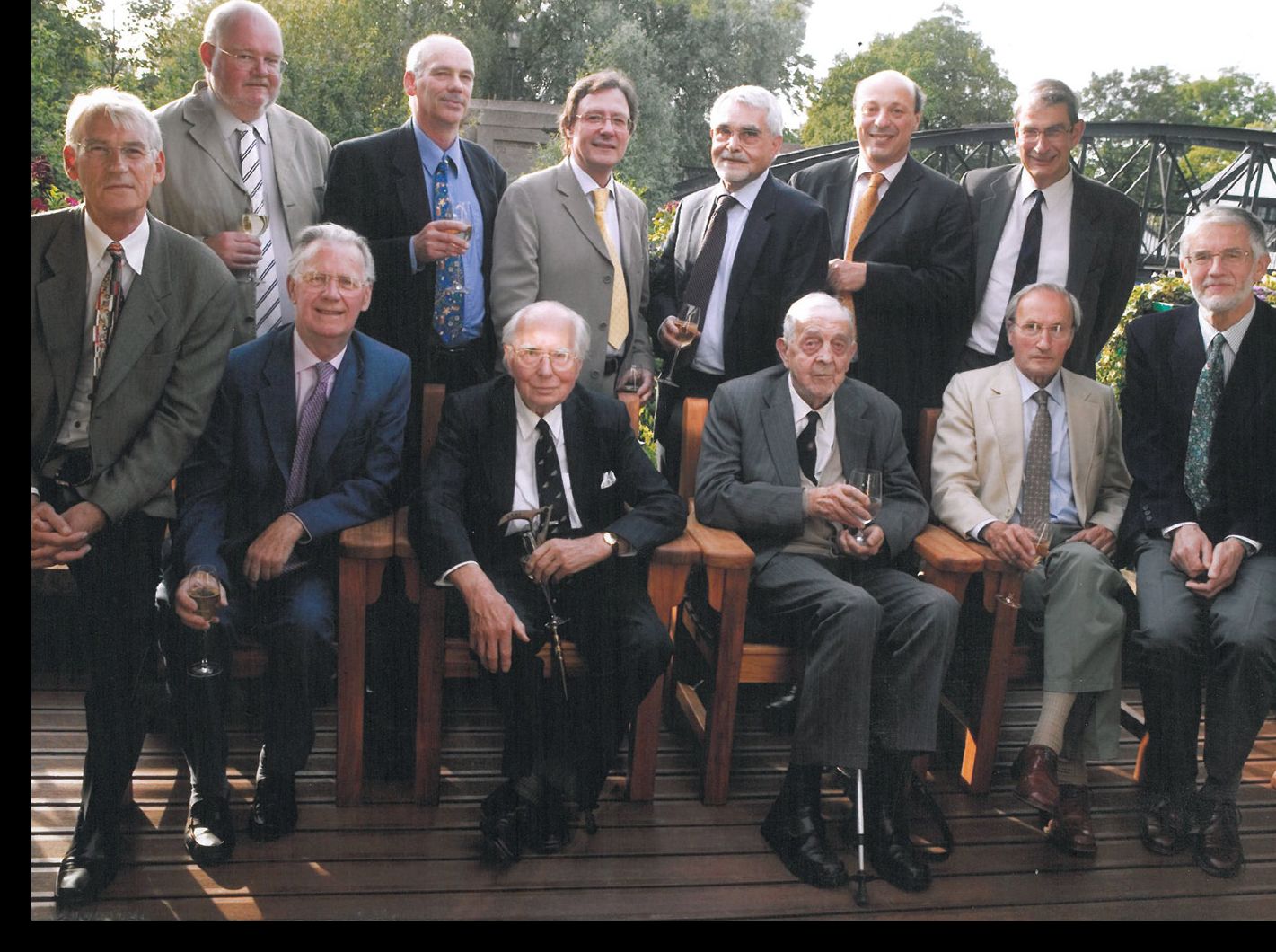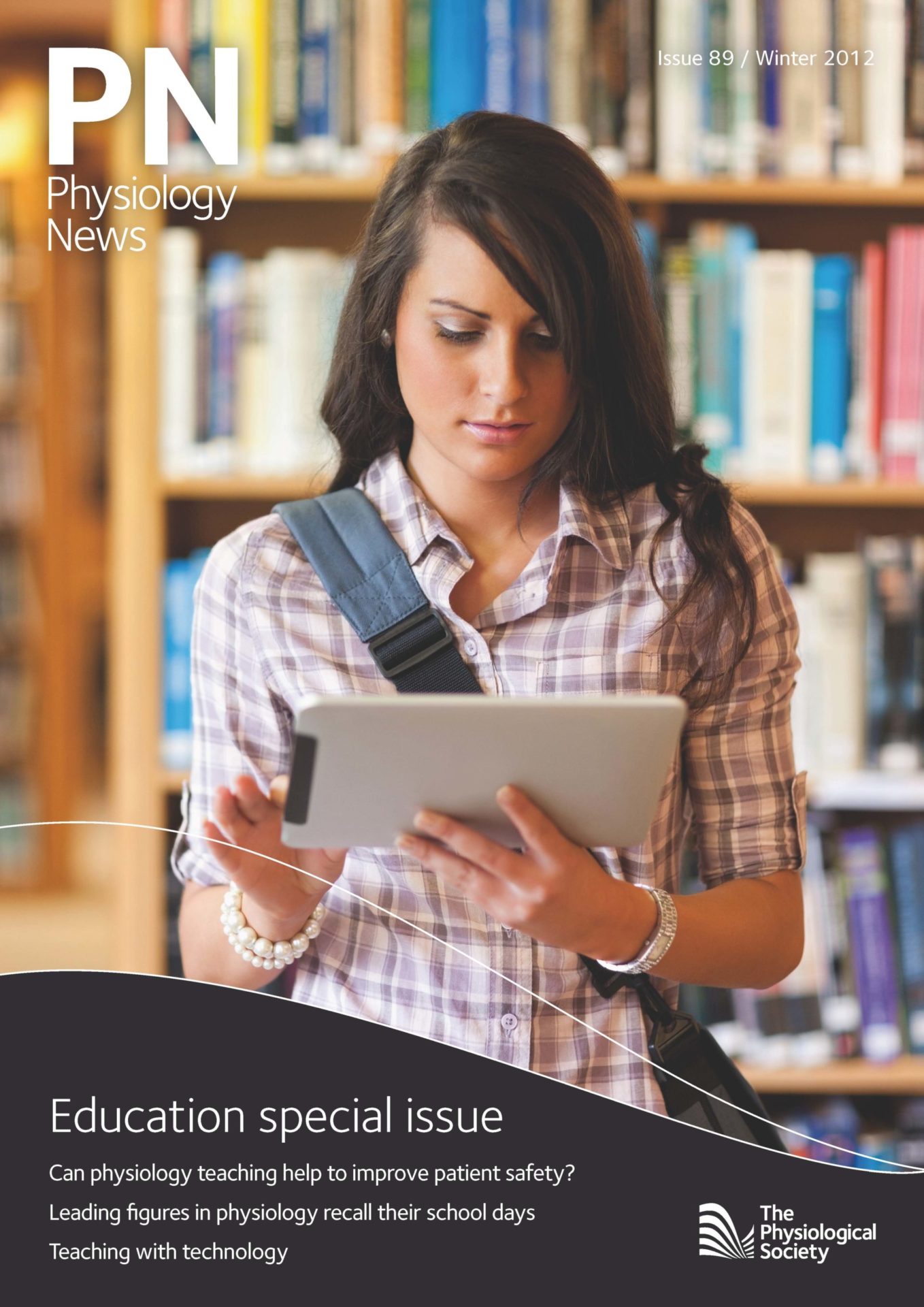
Physiology News Magazine
A commemoration of the life of Sir Andrew Huxley
Meeting Notes
Events
A commemoration of the life of Sir Andrew Huxley
Meeting Notes
Events
Mike Collis
https://doi.org/10.36866/pn.89.15
17 October 2012, London, UK

Sir Andrew Huxley was elected as a Fellow of The Royal Society at the remarkably young age of 37 and was subsequently President from 1980 to 1985. It was therefore appropriate that this event, to commemorate his life and work, was held at their headquarters in London.
The lecture theatre was packed with Sir Andrew’s friends, senior physiologists and peers who heard a number of eminent speakers discuss his life and accomplishments: Paul Nurse, ‘Sir Andrew and The Royal Society’; John Bradfield, ‘Sir Andrew and Trinity College’; Roger Woledge, ‘Sir Andrew and UCL’; Jonathan Ashmore, ‘Sir Andrew and The Physiological Society’; Dennis Noble and Malcolm Irving, ‘Sir Andrew’s research on nerve and muscle’; and his son, Stewart Huxley, ‘Sir Andrew and Engineering.’ These engaging talks were complemented by photographic and equipment exhibitions.
Sir Andrew originally planned to become an engineer and his ability to modify research tools was essential in his discoveries in nerve and muscle physiology. He had a close affection for Trinity College Cambridge where he was a Natural Sciences student, researcher until 1960 and Master of the College in 1984, at a time when he was also president of The Royal Society and a Nobel Laureate. As Master he dealt with important and controversial issues with characteristic dedication, devotion to duty and attention to detail. His analytical, even handed and wise approach shone through in all decisions, including buying a bright red car after a road accident to ensure other road users saw him!
As Head of Department at UCL in his middle years, Sir Andrew inspired many undergraduate and research students. However, his intellect was too much for first year medical students: one commented that his lectures would be easier to understand if he didn’t rub out an equation on the blackboard with one hand whilst writing another with the other! Despite working in London for nearly 25 years, he retained his Cambridge home and stayed in B&Bs near UCL so that he was last to leave and first to arrive each day! His intellect was awe inspiring and he could appear to be asleep during seminars before delivering a devastating question. He had an ‘extra gear’ intellectually but could adjust and discuss research in a supportive and helpful way (even in Russian).
Sir Andrew had a 70 year association with The Physiological Society and published most of his key papers in The Journal of Physiology. He was on the editorial board of The Journal, covered as Press Editor and served two terms on the Society’s committee.
Few scientists make one major discovery in their lifetime, but Sir Andrew made two. He also found time to provide leadership for prestigious organisations and encourage a generation of young researchers. He was a giant of technology and of physiology and this commemorative event was a positive endorsement of his achievements and a fitting tribute to a great physiologist.
